Congratulations on getting an offer to study with us! We hope we'll get to meet you soon, but in the meantime, we wanted to give you a chance to learn more about our Programme Lead, Helen Recchia.
Meet your tutors
I actually did Midwifery at York
Before I started midwifery, I trained in Adult Nursing at Leeds, and then worked as an orthopaedic nurse for just under a year. I was thinking about midwifery throughout, but I wasn't so sure of the route into it. It was always on my agenda, I think. I didn't dislike nursing, and I learned lots of transferable skills and gained confidence to start my midwifery course, but I think I always knew that it was what I wanted to ultimately do.
At the time, there were more universities offering the 18-month programme, and we were maybe more fortunate in that we were supported financially. You were paid as an adult staff nurse while on the course - it was quite a luxury!
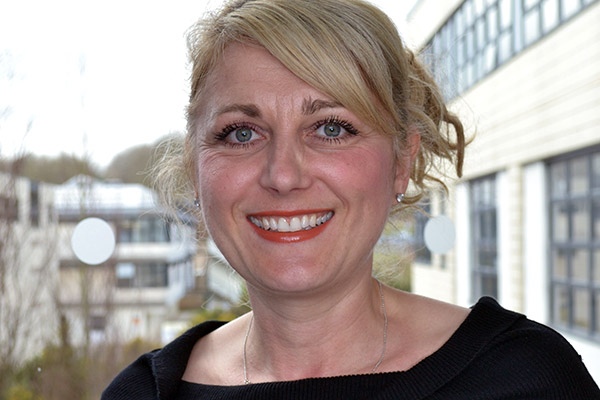
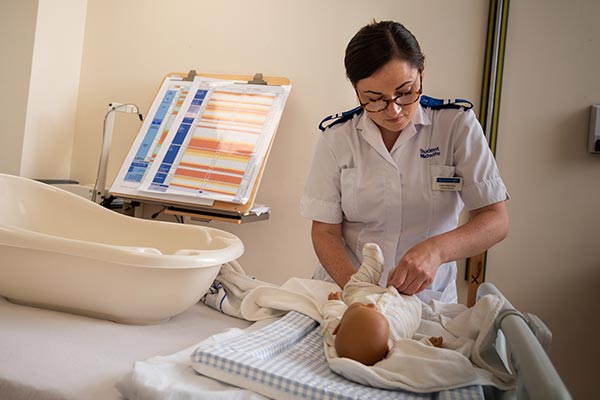
There are so many paths to follow
Midwives have loads of opportunities depending on our specialities, whether safeguarding or public health, or moving from clinical practice into education or research. My part-time PhD keeps me out of mischief, and is something that really accompanies the role I'm doing now. I can share what I'm learning with the students.
I never thought I'd end up in education. This opportunity came up while I was clinically working as a midwife, and I thought, “Oh, I like having students working alongside me, I like teaching students skills, I could do that - maybe I'll give it a go!” It’s perhaps something that most students think they probably won’t be doing when they qualify, but in five years’ time it could look entirely different.
We keep ourselves busy
A previous clinical role as a ‘supervisor of midwives’ led me to be a module leader on the course. We looked at professional regulation, the history of midwifery, how midwives can work safely and competently, the legislation around that, and ways midwives can be supported to practise effectively.
Now, l oversee the operational side of the day-to-day running of the course, and I'm also involved at a module leadership level. Module work takes up quite a lot of time, as well as the meetings and extra things that you're invited to when you're the Programme Lead. Because it's a small team, we're all involved in all sorts - there’s always loads to do!
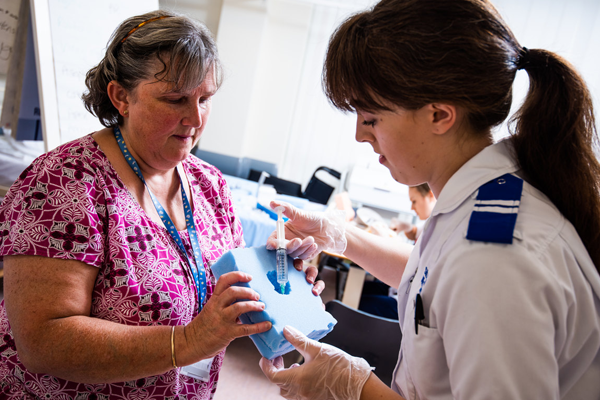
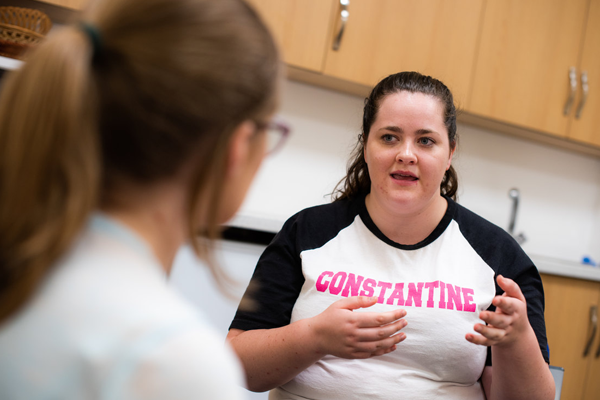
Flexibility is key…
Healthcare professions have faced the additional stress of the coronavirus pandemic. That’s had an impact on our practice partners, and on the students returning to the clinical area. We’ve had to make major changes to the course to support everyone.
The programme is half theory and half practice, with a lot of interactive and participatory teaching, so we use skills we've learned as clinicians for a flexible approach. Some of our modules involve developing clinical skills, or the emergency drills required in midwifery practice. I think we've all learned different strategies and techniques as module leaders to take care of the students, and to make learning as engaging as possible.
…and huge changes are under way
Midwifery is always full of new research. Perhaps the biggest and most exciting shake-up in the last 20 or 30 years is the ‘continuity of care’ model, which is being introduced all over the country. This means the same midwife (or team of midwives) is responsible for the beginning of someone's pregnancy, throughout labour, then visiting them in the postnatal period - the whole birth continuum.
Our students work in ‘continuity of care’ teams with midwives, seeing women through the whole journey instead of having more of a piecemeal approach. That hopefully means giving the best care that's available during that time in their lives. There’s a lot of evidence around the benefits of that for women.
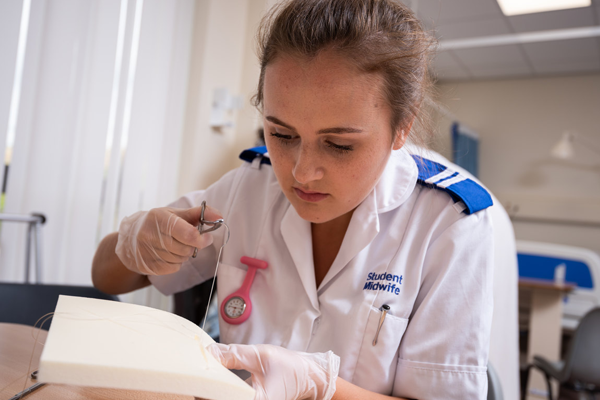
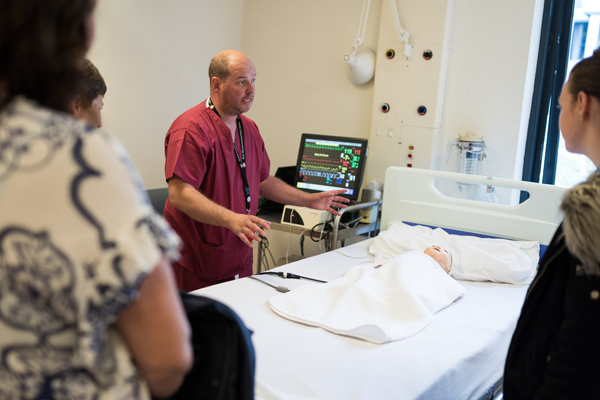
Knowledge is always close by
I often get asked for top tips for the next generation. There’s definitely a public desire to become a midwife, which is fantastic because it's a superb career with loads of opportunities. But it can be difficult to gain experience before you embark on the degree.
Don't worry about not having specific midwifery experience. It’s useful to observe in a local healthcare setting to gain transferable skills, like dealing with the public (such as the families we look after). Look into other practices, such as aquanatal classes, children's centres or breastfeeding cafés. You can also read midwifery publications: the Nursing and Midwifery Council, The Royal College of Midwives, the Association of Radical Midwives, and Birthrights.
Midwifery certainly keeps you sharp
I wouldn't be the first or the last person to say you literally learn something new every day as a midwife. You don't go home thinking, “I know all of this,”; more like, “Oh God, I didn't know that - that's interesting!” Midwifery varies, and we try to share that with the candidates and the students who are starting the programme: that every day might be really quite different.
Some people think that's fantastic, but others think it's unsettling, not knowing what you’re going to encounter when you start a shift. What you started at the beginning of the day is never really what it ends up being by the end. You need to be flexible in becoming a midwife, but it's exciting because every day is an adventure.
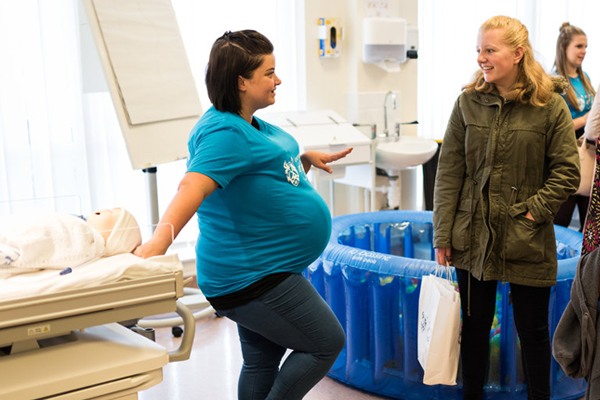
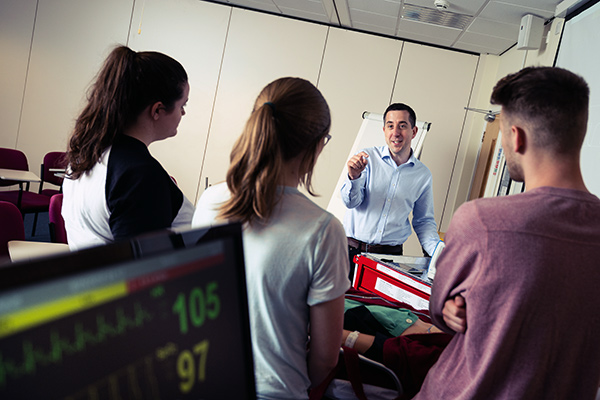
The importance of comfy shoes
We need to look after ourselves. If anybody wants to buy you something for the course, ask for a decent pair of shoes. On a 12-hour night shift, a comfy pair will get you a long way! You need to have a life outside the learning; whatever it is, it needs to make you happy. I’d encourage anyone in midwifery to have some escape hobby (mine is running!) to help you wind down.
The students who really embrace the programme are the ones who make use of peer support. There are times that are a bit tougher, a bit challenging, so having that network really, really helps. And because we're a small group, the students who become your friends here can become your friends for life. We can’t wait to meet you.
